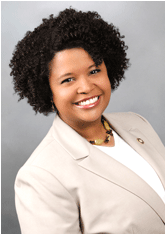JEFFERSON CITY—One of the most pressing problems facing our state this legislative session was the need to provide all of Missouri’s children access to a quality education close to home. At present, thousands of children are trapped in school districts that have failed them and have greatly reduced their chances of success.
An old Missouri law from 1993, while not a perfect solution, at least allows kids who are trapped in unaccredited schools the opportunity to transfer to neighboring districts. In spite of the hardship in doing so, hundreds of students and their families took the initiative to travel significant distances in order to pursue the education they deserve.
However, Missouri can do better. Over the past year, a bipartisan group of legislators worked to craft a groundbreaking education policy that would provide these kids with opportunities close to home. The legislation addressed school accreditation and tackled some of the challenges confronting districts in the school transfer process.
However, today the governor made good on his threat to veto Senate Bill 493.
“In spite of the months of bipartisan work that went into the legislation, the governor has now vetoed the bill,” said Senate Leader Tom Dempsey, R-St. Charles. “His veto is an incredible setback for some of Missouri’s most vulnerable children. The same governor who for months has had no interest in helping draft a workable solution has at least finally found his ink pen. Unfortunately, he only cares to use it to inscribe “VETOED” across the hard work of others. While those in the educational establishment who seek to protect their turf at all costs will celebrate, our thoughts are with the children who are the pawns in this pointless political game.”
“Senate Bill 493 was a proactive piece of legislation that brought all sides together,” said bill sponsor, Sen. David Pearce, R-Warrensburg. “I’m disappointed that the governor did not see fit to sign it.”
Co-sponsor Sen. Maria Chappelle-Nadal, D-University City, said she has been working nearly a year on a solution for not only her community, but all areas of the state.
“The governor has provided no solutions during this process, offering only a fear-based public relations strategy and rhetoric,” said Chappelle-Nadal. “This bipartisan bill gave real solutions to real students. My disappointment is in knowing yet another few years’ worth of students has been deemed expendable in this political fight.”
Dempsey expressed frustration that the governor continues to stand in the way of a policy that would benefit thousands of children.
“In addition to vetoing a workable solution, the governor’s Department of Education and his appointed education board have gone well beyond their legal authority and have effectively blocked the opportunity for hundreds of kids to continue to transfer to better schools. Sadly, kids who are willing to take the brave step to transfer to new schools in order to make a better life for themselves, now find the way blocked by bureaucrats who think they know better,” said Dempsey.
Some of the highlights of Senate Bill 493 included:
- SCHOOL BUILDING ACCREDITATION
- The State Board of Education would have accredited individual school buildings, along with the district as a whole.
- STUDENT TRANSFERS
- Students who attended an unaccredited school and wanted to transfer would have had four possible options:
- Transfer to an accredited school building in the same district.
- Transfer to a charter school located in the boundaries of the district.
- A school board of an accredited district may sponsor a charter school located in an unaccredited district.
- Transfer to an accredited school in an accredited district in the same or an adjoining county.
- Transfer to a private, nonsectarian school in the boundaries of the district.
- Option only available in St. Louis City and St. Louis and Jackson Counties.
- When 25 percent of a school’s enrollment consists of transfer students, the school must conform to the Missouri School Improvement Program performance standards.
- Tuition can only be paid with the local property tax funds, not state revenue.
- Any student enrolled in an unaccredited district who wanted to transfer must have been enrolled for at least one full semester in the unaccredited district to be eligible.
- The district of residence would have paid the student's tuition determined by the receiving district.
- Tuition couldn’t exceed all amounts spent for teachers’ wages, incidental purposes, debt service, maintenance, and replacements.
- Each district could have established a policy for desirable class size and student-teacher ratios, and would not have been required to accept any transfer students that would violate its policy.
- REGIONAL EDUCATION AUTHORITIES
- The bill created three separate regional education authorities to coordinate student transfers from unaccredited districts to accredited districts, one for St. Louis City and County, one for Jackson County, and one for the rest of the state.
The Senate will convene again for the annual veto session on Sept. 10, 2014. At that time, a decision whether to override the governor’s veto will be made. To learn more about these bills or to track the progress, visit www.senate.mo.gov.
|



